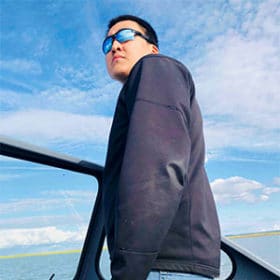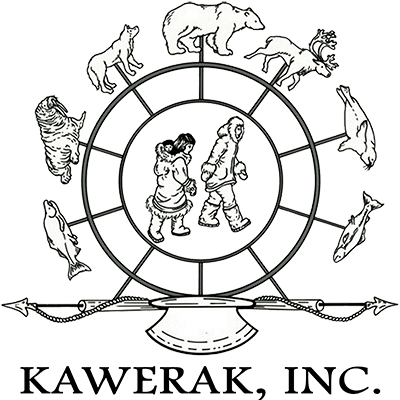What drew you to the Caleb Scholars Program? Do you have a personal story about meeting Caleb, connection to his legacy, or connection to our Program mission?
Unfortunately, I do not have a personal story about meeting Caleb, but his ideology on cultural and environmental conservation is something that I admire. It is Caleb’s belief of Cultural Conservation that drew me to the Caleb Scholars Program. As a future educator, I believe in the domino effect that cultural education can have on the environment. One of our 17 Inupiaq Values is Respect for Nature. Being that I am from the Northwest Arctic, I understand the importance of environmental conservation and how important it is for the Inupiaq people.
What does conservation mean to you? How do you engage with conservation at school and/or at home?
Conservation means to protect and regain what we have available to us. The heart of Alaskan conservation lives within tribal traditions and beliefs such as the Inupiaq Iļitqusiat or what is known as the Inupiaq Values. It is through these values I engage in cultural conservation as my interest as a future social studies teacher allows me to think about preservation. It is my belief, that education on these core values can lead to environmental conservation and preservation by building new leaders through students.
What are your future educational and career goals? What are the top three things that are moving you toward those goals?
My future career goal is to become a high school social studies teacher in the region where I grew up. After I understand the workload of being a teacher, I will seek out a master’s degree in Arctic and Northern Studies. The top three things that are moving me towards these goals is the fact that I have worked very hard to complete my educational program that has earned me the current student teacher position for this year. I also am driven to finalize my secondary ed. and history degrees at the end of this upcoming school year. The last thing that keeps me moving towards my goal is my curiosity of historical events and global effects that especially pertain to our region.
Can you share a memorable story from your past when you felt a relationship to the ocean or land?
It is difficult for me to point out a single memory of my past where I felt a relationship to the ocean or land as I have many. The one place where I feel like I have a connection to both the land and the sea is at Sisaulik. Each summer my family and I would spend a month across Kotzebue at Sisaulik subsistence harvesting, whether it be hunting, fishing, or gathering. During this time, I learned the importance of conservation through only catching and gathering what we needed. This value was instilled in me by my elders and continues to be an important balance that I want to teach my students on how to live off the ocean and land.

